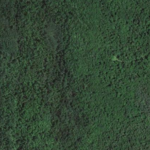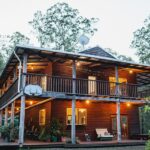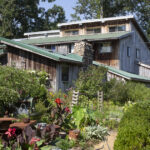Start Your Sustainable Community
Creating an ecovillage is an ambitious and rewarding project, but success begins with a solid business plan. A business plan serves as your roadmap, guiding every decision and helping you secure resources. Below, we outline the essential components, benefits, and resources to help you craft a winning ecovillage business plan.
What Is a Business Plan?
A business plan is a structured document that outlines the goals, strategies, and financial projections of a project or business. For an ecovillage, it details the vision for your sustainable community, including:
- Purpose and objectives
- Organizational structure
- Funding sources
- Marketing strategies
- Operational plans
- Financial projections
Think of it as a blueprint for turning your vision into reality while keeping stakeholders and investors informed.
Why You Need a Business Plan
- Clarity and Direction A business plan helps you clarify your goals and define actionable steps, ensuring everyone involved is aligned.
- Attracting Investors and Partners Potential investors, donors, or partners will want to see a well-thought-out plan before committing resources to your project.
- Risk Mitigation By identifying challenges and proposing solutions, your business plan minimizes risks and sets you up for long-term success.
- Compliance with Regulations Many municipalities require detailed project proposals for zoning approvals or permits. A business plan ensures you meet these requirements.
Key Elements of an Ecovillage Business Plan
- Executive Summary Provide a concise overview of your project, including its mission, vision, and goals.
- Market Research Analyze demand for sustainable living communities, identify your target audience, and assess competitors.
- Organizational Structure Define leadership roles, responsibilities, and governance structures.
- Funding Strategies Outline how you will finance the ecovillage, such as crowdfunding, grants, or loans. Include projected costs for land acquisition, infrastructure, and marketing.
- Site Selection and Land Use Detail the criteria for choosing your site, including soil quality, water availability, and proximity to resources.
- Marketing and Outreach Develop strategies to attract members, raise awareness, and promote your ecovillage.
- Sustainability Practices Highlight your approach to renewable energy, waste management, and sustainable building methods.
- Financial Projections Include budgets, cash flow analyses, and revenue forecasts to demonstrate your project’s viability.
Helpful Tips for Writing Your Business Plan
- Be Realistic: Avoid overly optimistic projections. Use data to back up your assumptions.
- Use Visuals: Incorporate charts, graphs, and diagrams to make your plan engaging.
- Seek Feedback: Share your draft with advisors, partners, or potential members for constructive input.
- Update Regularly: A business plan is a living document. Revise it as your project evolves.
Resources to Help You Get Started
- Business Plan Templates
- Grants and Funding Sources
- USDA Rural Development for rural project grants.
- Global Ecovillage Network: Support and networking for ecovillage creators.
- Educational Resources
- Ecostarters Guides: Step-by-step guides on sustainable living and community building.
- Sustainable Economies Law Center: Legal support for cooperative and sustainable projects.
- Mentorship Programs
- Small Business Administration (SBA): Free mentorship and resources.
- Ecostarters Mentorship Program: Connect with experienced community builders.
Developing a business plan is a critical step in making your ecovillage project a reality. It provides a clear vision, attracts stakeholders, and ensures financial sustainability. Start your journey by using the tips and resources above, and set the foundation for a thriving sustainable community.
Next Steps…




